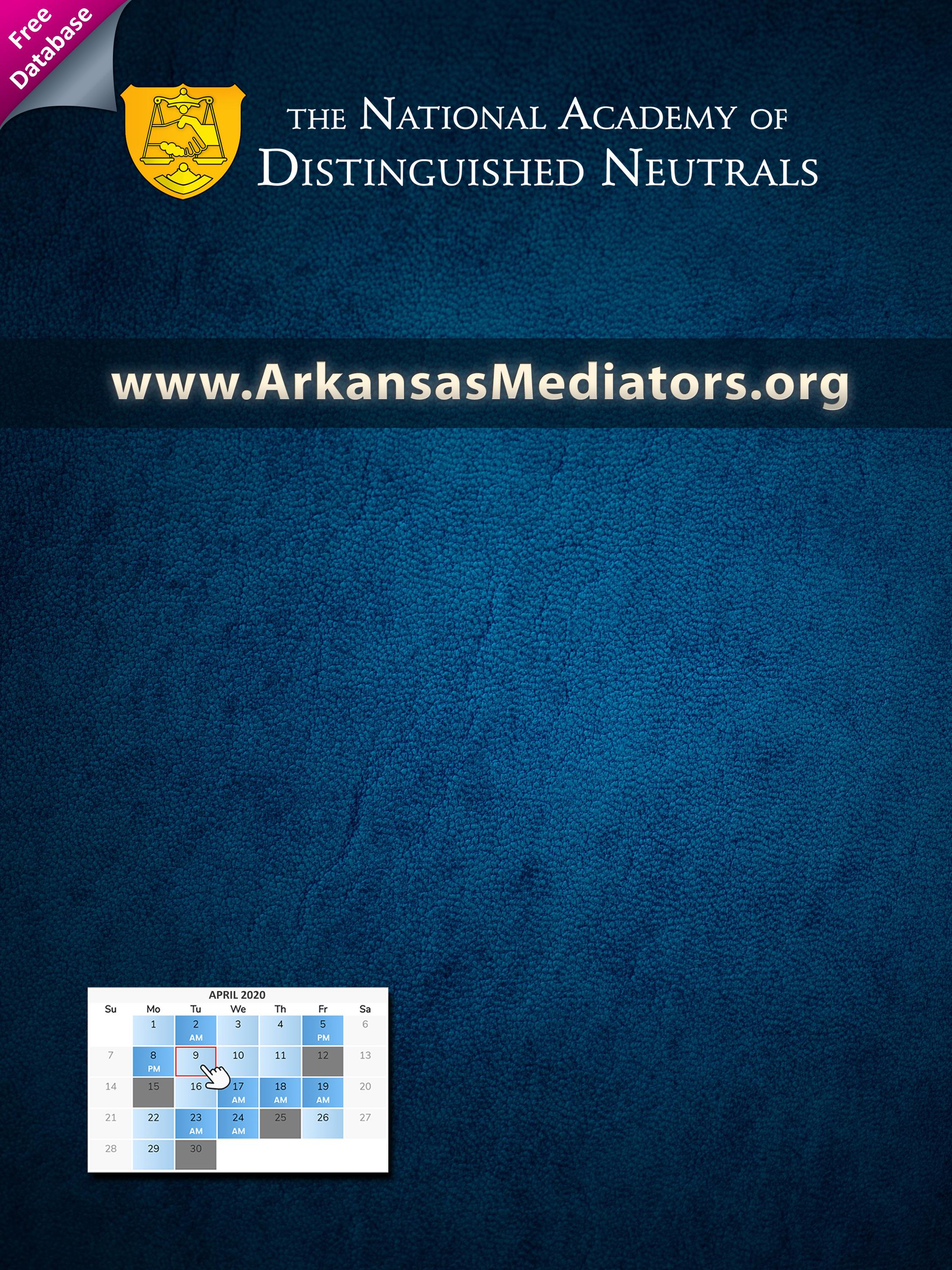
9 minute read
Sustaining Contributors
Sustaining Contributors 2019-2020
Benefactors 2019-2020
Advertisement
Benefactors are members who make a sustaining contribution of $250/year in addition to membership dues to support Association programs.
Mark H. Allison Thomas M. Carpenter Suzanne G. Clark Ralph M. Cloar Steven A. Cosse Steven B. Davis Justice Robert H. Dudley Jack East III Bob Estes Brent J. Eubanks John F. Gibson, Jr. Judge Donald Goodner Judge David F. Guthrie David Michael Hargis R. Victor Harper Joseph Hickey Denise Reid Hoggard Donald T. Jack, Jr. Paul W. Keith William H. Kennedy III Charles Knox Lincoln II Michael R. Mayton Jerald Cliff McKinney II Brandon K. Moffitt Margaret Woodward Molleston Timothy J. Myers Debby Thetford Nye William L. Owen William Lance Owens William L. Patton, Jr. John V. Phelps Joseph H. Purvis Richard L. Ramsay Brian M. Rosenthal Judge John R. Scott Scotty M. Shively Ted C. Skokos James W. Smith James D. Sprott Mary Beth Sudduth W. H. Taylor Greg A. Thurman William A. Waddell, Jr. Danyelle J. Walker Eddie H. Walker, Jr. David J. Whitaker Tom D. Womack Susan Webber Wright
Patrons 2019-2020
Patrons are members who make a sustaining contribution of $100/year in addition to membership dues to support Association programs.
Elizabeth Ann Andreoli Ben F. Arnold Barry D. Barber Melody Peacock Barnett James Paul Beachboard Roy T. Beard III David L. Beatty Kandice A. Bell Paul B. Benham III Michael Stephen Bingham Allen W. Bird II Judge Samuel N. Bird Charles Tad Bohannon Senator Will Bond Ted Boswell Eugene D. Bramblett Robert Bruce Branch, Sr. Silas H. Brewer, Jr. Fred E. Briner Bill W. Bristow Larry W. Burks Paul Byrd Robert D. Cabe Worth Camp, Jr. Donald K. Campbell III Earl Buddy Chadick H. Murray Claycomb Roger U. Colbert Charles T. Coleman Randy Coleman Jon B. Comstock Nate Coulter Judge James O. Cox Michael A. Crockett J.B. Cross, Jr. James E. Crouch Tim J. Cullen F. Thomas “Tom” Curry Thomas A. Daily Judge Robert T. Dawson Judge Beth M. Deere Terry Dugger Warren E. Dupwe Don A. Eilbott Byron M. Eiseman, Jr. Laura K. Ferner Lyle D. Foster Matthew L. Fryar Price C. Gardner Buck C. Gibson Charles Clifford Gibson III Pamela B. Gibson Sam E. Gibson Greg R. Giles John P. Gill Dent Gitchel Morton Gitelman Ronald L. Griggs Justice (Ret.) James H. Gunter, Jr. Judge Barbara A. Halsey Don F. Hamilton Frank S. Hamlin Alexandra K. Harper Charles L. Harwell Richard F. Hatfield Rosanna Henry Paul F. Henson Anthony A. Hilliard Glen Hoggard Cyril Hollingsworth Don Hollingsworth Robert Howard Hopkins, Sr.
Thank You for Your Support
Patrons (cont.) 2019-2020
Frank Huckaba Karen K. Hutchins James W. Hyden Judge Michael E. Irwin Donald T. Jack, Jr. Lawrence W. Jackson Randolph C. Jackson Judith M. Johnson Robert S. Jones Jim Julian Philip E. Kaplan Sean T. Keith Donald H. Kidd Judge Milam Michael Kinard Joseph F. Kolb Peter G. Kumpe Howard Baker Kurrus Michelle Y. Leding John Charles Lessel Stark Ligon Judge John R. Lineberger Stephen A. Lisle Steven M. Lowry Gabriel D. Mallard Richard Bryant Marshall Stewart D. Matthews Michael S. McCrary Bobby McDaniel Becky A. McHughes Josh E. McHughes James “Jim” A. McLarty III James E. McMenis Anthony L. McMullen Philip Miron Judge Chalk S. Mitchell Michael W. Mitchell Harry Truman Moore Henry Clay Moore Wm. Kirby Mouser Sheffield Nelson Judge William David Newbern Frank B. Newell Stephen B. Niswanger Edward T. Oglesby Judge James E. O’Hern III Brant Perkins Donald C. Pullen Brian H. Ratcliff Gordon S. Rather, Jr. Robert Jeffrey Reynerson Judge Curtis E. Rickard William B. Roberts William S. Robinson Charles D. Roscopf John L. Rush Don M. Schnipper Stephen M. Sharum Justice Ronald L. Sheffield Shaneen K. Sloan Don Allen Smith Michael W. Spades, Jr. O. C. “Rusty” Sparks Aaron L. Squyres Jean D. Stockburger James H. Swindle David S. Taylor Judge Cindy Thyer Justice Annabelle Imber Tuck Richard Edwin Ulmer James R. Van Dover Judge Rice VanAusdall Glenn Vasser Vicki S. Vasser-Jenkins Judge Bill H. Walmsley Judge John C. Ward Lt. Col. Stan L. Warrick John Dewey Watson Timothy Fagan Watson, Sr. Judge Gordon Webb J. Adam Wells Edd N. Williams, Jr. Carolyn B. Witherspoon Marsha C. Woodruff Ronald G. Woodruff Andrea Grimes Woods Daniel Yates Steven S. Zega Audra Katharine Zemma Dennis M Zolper
Become a Benefactor or Patron Member
Your gift strengthens the Association by helping to support its mission and many projects. You will receive: • recognition as individual sponsors in The Arkansas Lawyer magazine • a specialty ribbon for your name badge at the Annual Meeting • recognition at the Annual and Mid-Year Meetings
By Jennifer Donaldson, LCSW, Executive Director, AR JLAP
Trauma. This word may bring several things to mind: war, fire, vehicular accident, natural catastrophe, terrorism.… Most may not identify a pandemic–much less the COVID-19 Pandemic we are facing. While our focus is appropriately locked in on treatment, prevention and containment, a sleeping giant is slowly beginning to awaken: T-R-A-U-M-A.
Trauma is the response to an event(s) that causes mental and/or emotional distress resulting from a threat to one’s safety. As individuals, our trauma responses and thresholds for distress vary significantly, as do our subjective experiences of the everevolving world around us. While one person may experience a traumatic event and appear to be responding adaptively, another may experience the same event with overwhelming distress that triggers unhealthy cognitive, emotional, or behavioral responses. The intensity of a traumatic experience combined with our biologically-hardwired responses to stress determine where we fall on the spectrum. However, there is one common thread to trauma: it does not sleep forever.
As a clinician, one of the most-asked questions in session is “What do I do now?” This usually follows an enlightened moment where one recognizes a crossroad and has a desire to adapt and thrive. The same question seems applicable day-to-day and, at times, moment-to-moment, as the pandemic continues with no clear end in sight. So, what is the answer? And how do we know what is the RIGHT answer? While the clinical response would be a rhetorical question to elicit further critical thinking and self-exploration, there are guiding principles to assist in answering this question, as often as it presents itself; believe me, when dealing with trauma, this question will present itself time and time again!
Of these principles, the most important is the practice of self-awareness. Recognizing and understanding our own desires, drives, needs, morals, values, emotions, thought patterns, and behavioral responses aids us in developing a strong sense of self. To put it in simpler terms, the more I know about myself, the more power I have to manage myself. Looking from the perspective of trauma response, self-awareness is a tool that allows individuals to recognize and identify traumatic experiences while exploring the internal and external impacts on their life. As denial and shock begin to slowly lift, we are neurologically and physiologically in a position to begin self-exploration. While self-awareness is a universal practice, further exploration of trauma is recommended under the appropriate supervision of a mental health professional. It is important to note, the sole experience of a traumatic event does not automatically impose mental illness, nor does it warrant a diagnosis of PTSD, etc. Highlighting trauma is beneficial, as we all have traumatic experiences individually, and now, in this current time, collectively. Raising our level of self-awareness better equips us to respond to the impacts of trauma in a healthy, informed, safe manner, thus strengthening our families and communities.
Another important principle in the search to answer, “What do I do now?” is Resourcefulness. While this may sound elementary and unrelated, it is tied closely to self-awareness. When self-reflecting, identifying available and unavailable resources will assist in prioritizing and meeting individual needs. As physical and social distancing persists with our normal business, community, and social routines disrupted, discovering valuable resources is key to maintaining an overall sense of safety and normalcy. Finding connection and security promotes the ability to return to baseline in our cognitive and emotional responses, despite the current crisis. While we cannot “undo” our hardwired responses, i.e. fight, flight, or freeze, we can proactively connect our own needs with healthy resources and find balance based on personal insights.
While the months ahead remain uncertain, with heightened awareness and stable connection comes the ability to prepare and adapt as events unfold. This positions us to proactively engage in an evolving environment. We may not have the perfect answer to every “What do I do now?” but we will have the right tools for the search. For instance, when caring for a baby for any length of time, most can attest to the importance of two things during nap time: your own rest and/or completing essential tasks. Knowing when to do which is equally important. For as the child awakens, his or her need for attention outweighs all! This collective trauma experience and its impacts are not fully awake, and self-preparation is still possible on many levels. However, timing is everything; the longer we allow trauma to lie dormant, the more challenging our journey to baseline will be.
Arkansas JLAP staff, the JLAP Committee, the JLAP Foundation Directors, and JLAP volunteers, with the support of the Arkansas Supreme Court, are committed to providing assistance during the current crisis and times ahead. Acknowledging the presence of trauma and exploring the degree of impact in our own reality are beneficial tools for self-help; however, further assistance is available. In an effort to support the members of the Arkansas legal community, JLAP continues to offer individual mental health therapy, specialty mental health contract services, referral and resource connection, and community support and outreach with schools, firms, and organizations. JLAP is pleased to provide assistance and connection; please do not hesitate to reach out. For more information, please visit arjlap.org.
1,500.00 Amount $
Reference
NEW CASE
Card Number
**** **** **** 4242

Trust Payment
IOLTA Deposit
POWERING PAYMENTS FOR THE LEGAL INDUSTRY
The easiest way to accept credit card and eCheck payments online.
Powerful Technology
Developed specifically for the legal industry to ensure comprehensive security and trust account compliance
Powering Law Firms
Plugs into law firms’ existing workflows to drive cash flow, reduce collections, and make it easy for clients to pay
Powering Integrations
The payment technology behind the legal industry’s most popular practice management tools
Powered by an Unrivaled Track Record
15 years of experience and the only payment technology vetted and approved by 110+ state, local, and specialty bars as well as the ABA

ARKANSAS CHAPTER
The following attorneys are recognized in 2020 for Excellence in the field of Alternative Dispute Resolution The following attorneys are recognized in 2020 for Excellence in the field of Alternative Dispute Resolution
Larry Burks (501) 804-5288 Chris Gomlicker (501) 850-8888

Frank Hamlin (501) 850-8888
JP Jaynes (501) 920-4420
John Mercy (903) 794-9419
Jim Tilley (501) 372-1406 Dewey Watson (501) 804-4131 Todd Williams (870) 932-8357
Check your preferred available dates or schedule appointments online, directly with Academy Members - for free.
www.ArkansasMediators.org funded by these members






